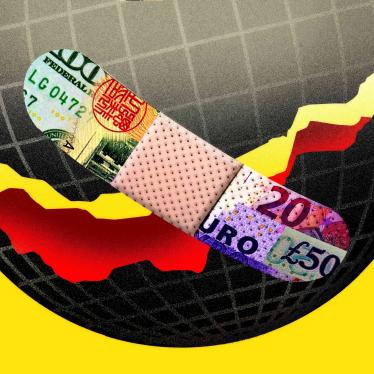Since 2020, the five richest men in the world have doubled their fortunes while almost five billion people have become poorer. A growing sense of economic injustice and insecurity is contributing to the rise of authoritarian movements around the world. Meanwhile, the world is set to blast past global heating targets. But this is not inevitable. What if, instead, economic decisions were made with people and the planet at the center?
This is the idea behind the concept of a human rights economy, which means putting rights at the heart of economic policymaking. The concept draws from the work of human rights scholars and organizations around the world, while supporting transformative economic approaches emerging from other movements, including climate justice, gender justice, and decolonization.
International human rights law guides how global resources should be used for everyone’s benefit while protecting the environment. It obligates governments to use the maximum of their available resources – individually and through international cooperation and assistance – to realize human rights. This includes economic, social, and cultural rights, such as to health, education, social security, housing, food, and water, as well as the right to a clean, healthy, and sustainable environment.
Yet governments have failed for decades to align their economies or international cooperation with these obligations. The exponential increase in resources has done too little to improve the lives of billions of people while devastating the planet. That needs to change.
Several human rights groups, including Human Rights Watch, have collaborated on a working paper, available in English, French, Spanish, and Arabic, which details how governments should set human rights as guideposts against which economic policies can be assessed, such as to progressively raise adequate revenues to fund universal public services and social security systems, as well as a just transition to sustainable energy.
At the same time, the paper recognizes that governments are often constrained by the global economic system within which they operate. Implementing human rights economies therefore means transforming the international financial architecture, including related to tax, debt, and the governance and operations of international financial institutions, to align with human rights. It also means moving beyond the longstanding fixation on GDP and growth as a measure of economic progress to metrics that reflect people’s lived reality and the environment.
Our current economic approach is putting people and the planet in crisis. A human right economy offers a blueprint for a far better approach.









